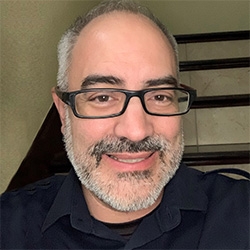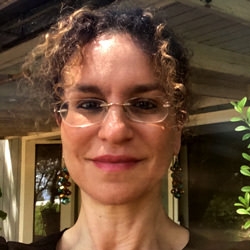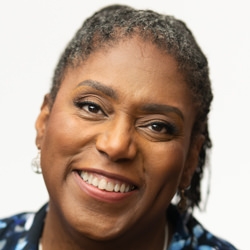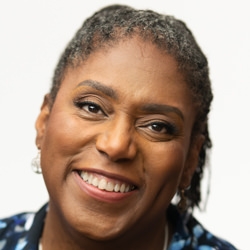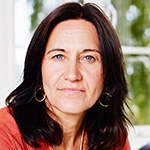
Search Results: socialization
-
Often, people don't help others when others are in danger, whether it is a parent who is abusing a child, a man who is battering his wife, someone sexually harassing another, a bully making fun of someone, or a person who is abusing a pet. However, intervening can save lives. And bring enrichment, peace, safety, care, and justice to the world.
-
The American mythos of Independence Day is that liberty, equality, and opportunity are for all. Yet since the country's formation, these needs have been for some at the expense of others. It started with the brutal robbery and genocide of Native Americans and slavery of Africans. And this theme continued for generations in various forms, including how we related to other peoples, countries, and the ecosphere. To achieve true justice, liberty, and opportunity for all we may need to overcome the ego's sense of separation. Compassionate noncooperation may also be key.
-
Join Aya Caspi, a Certified NVC Trainer, as she delves into the difficult topic of parenting, childhood trauma, and social status. She discusses the generational impact of being labeled by society as "less than" or subservient. The wounds of childhood trauma can be healed so they no longer are a means of control by a dominant culture.
-
Roxy Manning shares that facilitating equitable group dynamics involves tracking attention, needs, purpose alignment, resources, and impact. Identifying patterns in attention distribution, centered needs, and maintaining alignment with the purpose enhances inclusivity. Tracking internal and external resources, especially considering identity-related differences, prevents disparities. Recognizing who bears the impact, providing support, and addressing impactful issues contribute to fostering an equitable facilitation environment.
-
Roxy Manning suggests that in navigating a situation where accusations of racism and a white savior complex arise, the facilitator emphasizes the distinction between intention and impact. Acknowledging the pain of the aggrieved person, the facilitator clarifies that racism is about impact, not necessarily intention. Encouraging a focus on the impact first, the facilitator invites understanding of the internal and systemic levels of the experience. Despite the person's insistence on their intention, the facilitator remains firm in prioritizing the discussion of impact. The goal is to create a space for acknowledging and addressing the impact before delving into intentions.
-
- Discover how mediation is a fundamental social skill that everyone can learn
- Gain the skills to stay centered when a conflict becomes heated
- Learn how to lead a dialogue toward sustainable agreements
- Help facilitate connection and creativity to discover and meet everyone’s needs
-
Ask the Trainer: An NVC Academy member from Bosnia asks: "Is the NVC process truly effective in places where so much violence has occurred and people's pain is very deep?"
-
Miki demonstrates how to work with judgmental thinking, offering a two-step process to shift from right/wrong thinking about our disagreements to a more open-hearted state of being.
-
LoraKim Joyner addresses the sense of overwhelm that can accompany holding the needs of the many. Practicing self-empathy is a pathway to living in the tension of mutually holding my needs and the needs of others.
-
LoraKim explores what gets in the way of seeing the inherent worth and dignity of others when there is conflict in congregations. The strategies LoraKim offers can be applied to any spiritual community.
-
Developing interpersonal relationship skills in congregations is integral to working with the conflicts that arise. These skills can be applied to any spiritual community.
-
Miki responds to a participant’s question concerning fear of consequences when speaking with a manager at work. In this excerpt, she delves into the topic of choosing to inhabit nonviolence in the workplace, affirming that fear and nonviolence are incompatible, and that nonviolence is a powerful alternative to our habitual Fight, Flight, Freeze responses.
-
Miki responds to a 2014 NVC in Business Conference participant’s question concerning the focus on needs over other aspects of NVC in business communication.
-
Listen in as Dian shares her vision for spreading NVC through the world, and engages with participants in sharing their visions, and the areas in which they are seeking support. This session stresses the value of visioning work.
-
I love the insights, resources, and inspiration I get from this course. It gives you a glimpse into the support Miki offers around deepening the practice of nonviolence in thought, word, and action.
—Lore Baur, NVCA Course Coordinator, CNVC Certified Trainer.Miki is sharing what that means "Responding to the Call of our Time" for her and invites us to feel that call. This video illustrates how she is helping participants through teaching, coaching and mentoring so they can move forward with their challenges.
-
In groups, relationships and society we may not want to dominate or take away from others’ access to power, to choice, to participation in decisions, nor to shaping the vision and direction of the dynamic. And yet how do we do it anyway without knowing it? Discover how privilege operates on a societal level and becomes so invisible in groups. Learn why the conversation is usually excruciating for members of both privileged and under privileged.
-
There's the real need. And then there's the privilege that’s offered as a substitute for it. Privilege substitutes support the existing structure of society. It can look to us as if giving up the privilege would amount to giving up everything -- if we don't believe the real needs can even be experienced. If we connected directly to the needs, we could become subversive, agents of change.
-
What is it that we are taught we can’t have, and what is it that we are encouraged to pursue instead? This guide could help you see through what's hidden behind the curtain of our societal conditioning.
-
How do we address historical and present challenges regarding the invisibility of privilege and power? What can we do, especially if we are people with privilege, to transform these conditions? However challenging these kinds of situations are, and whatever our position, we can move towards more inclusivity by learning and doing significant inner and outer work.
-
We're in difficult times - possibly at the brink of extinction. What can we do in response? Some nonlinear steps: A.) Notice what isn't working; B.) Mourn so that we can move "towards" from an expanded space inside; C.) Analyze to bring a fuller understanding of what's happening and what's needed; D.) Reframe our inner and outer narratives; E.) Discern what we can contribute; F.) Care; and G.) Bring in support for more resilience and creativity.

